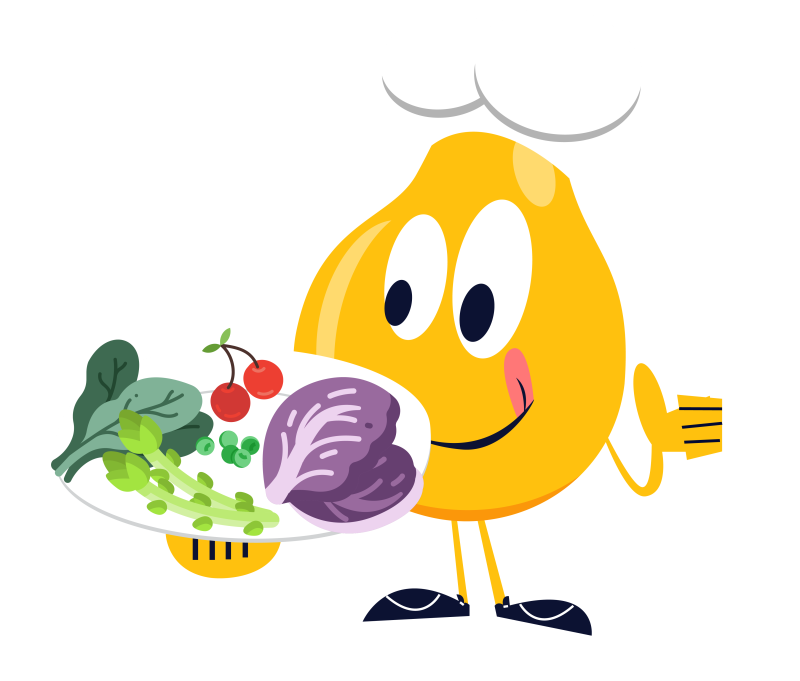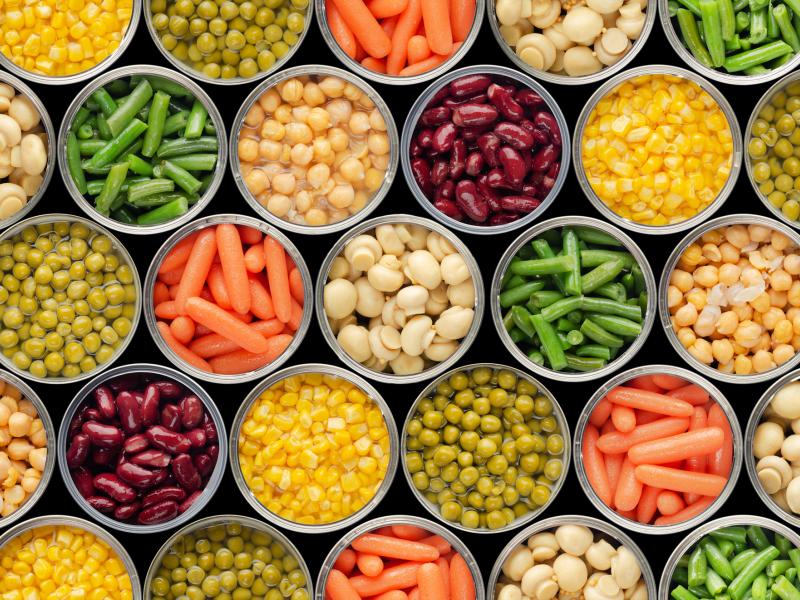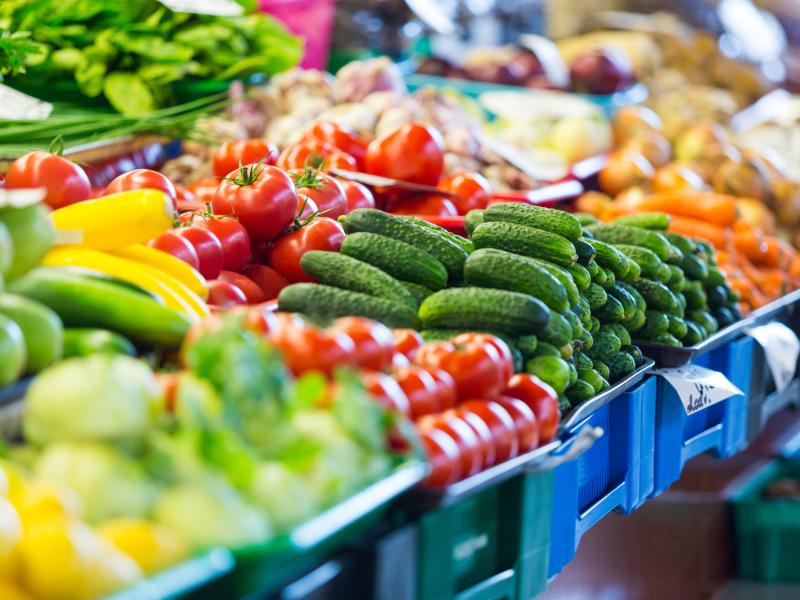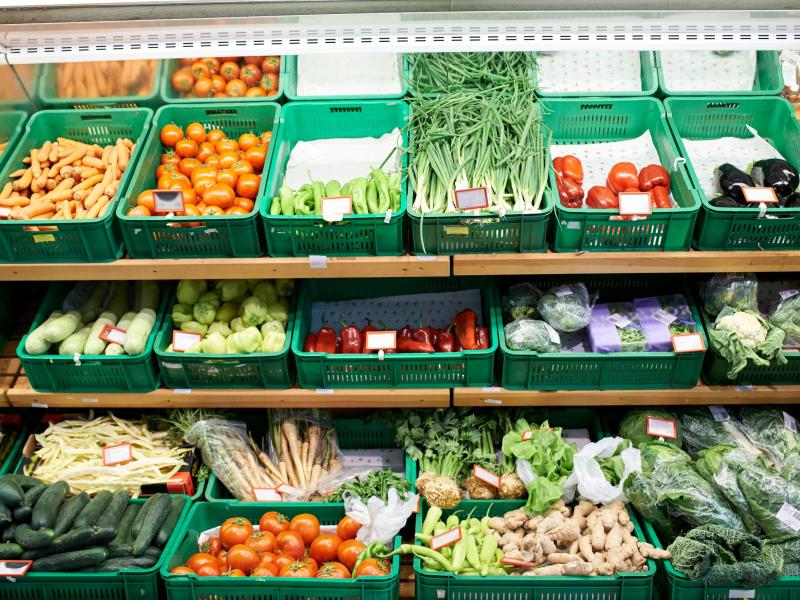
MyPlate shows that half of your plate should be fruits and vegetables. The produce department has all the fresh veggies and fruits you need to fill up your plate. This department will be the best place to look for in-season produce options, but remember that you can also find produce options throughout the store including in the frozen foods and canned foods aisles.
Play the Produce Game
Fresh, Frozen and Canned
Since half of your meals should be made up of fruits and vegetables, it’s important to make sure you can find a variety of affordable options. Fruits and vegetables are found most commonly in the fresh produce department, the canned food department, and the frozen foods department. Regardless of where you find your fruits and vegetables in the store, they are all a great source of nutrition! This chart lists things to keep in mind when you're shopping for produce in different areas of the store.
| Produce | Reasons to Love | Keep in Mind |
|---|---|---|
| Fresh |
|
|
Frozen
|
|
|
Canned
|
|
|
- Fresh produce is most affordable (and usually most flavorful) when purchased in-season.
- Canned and frozen fruits and vegetables are picked at peak freshness and immediately packaged so they retain the most nutrients possible.
- The most important thing to remember is to make sure you are getting lots of fruits and vegetables in your diet. It doesn't matter as much which version you purchase. Choose fresh, frozen, or canned based on whatever works best for your budget and family.
Buying Produce In-Season
When produce is purchased in-season, it can be much more affordable. You can even freeze fresh produce to use later when there is a good sale in the produce department. To give you an idea of which items to look for each season, check out this list of fruits and vegetables by season.
| Spring | Summer | Fall | Winter | All Seasons |
|---|---|---|---|---|
Asparagus Avocados Broccoli Cabbage Collard Greens Garlic Kale Kiwifruit Lettuce Mushrooms Onions Peas Pineapples Radishes Rhubarb Spinach Strawberries Swiss Chard Turnips | Avocados Beets Bell Peppers Blackberries Blueberries Cantaloupe Cherries Corn Cucumbers Eggplant Garlic Green Beans Honeydew Melon Lima Beans Mangos Okra Peaches Plums Raspberries Strawberries Summer Squash Tomatillos Tomatoes Watermelon Zucchini | Beets Bell Peppers Broccoli Brussels Sprouts Cabbage Cauliflower Collard Greens Cranberries Garlic Ginger Grapes Green Beans Kale Kiwifruit Lettuce Mangos Mushrooms Onions Parsnips Pears Peas Pineapples Potatoes Pumpkin Radishes Raspberries Rutabagas Spinach Sweet Potatoes Yams Swiss Chard Turnips Winter Squash | Avocados Beets Brussels Sprouts Cabbage Collard Greens Grapefruit Kale Kiwifruit Leeks Onions Oranges Parsnips Pears Pineapples Potatoes Pumpkin Rutabagas Sweet Potatoes Yams Swiss Chard Turnips Winter Squash | Apricots Apples Bananas Carrots Celery Herbs Lemons Limes |
- Check flyers to see which fresh produce items are on sale because they will often be the produce that is in-season.
- If there is a really good deal on in-season produce, think about buying extra to freeze for cooking with later.
- If you want to purchase certain out-of-season produce items, check the frozen or canned versions first to see if they are more affordable.
Organic vs Conventional Produce
When it comes to organic produce, it tends to be more expensive than conventional produce, but the current research has not shown a big difference in the nutritional value between organic and conventional produce. Both conventional and organic produce must meet pesticide residue standards set by the USDA.
The bottom line is that it is most important to include a variety of affordable fruits and vegetables in your daily meals, regardless of whether they are organic or not.




